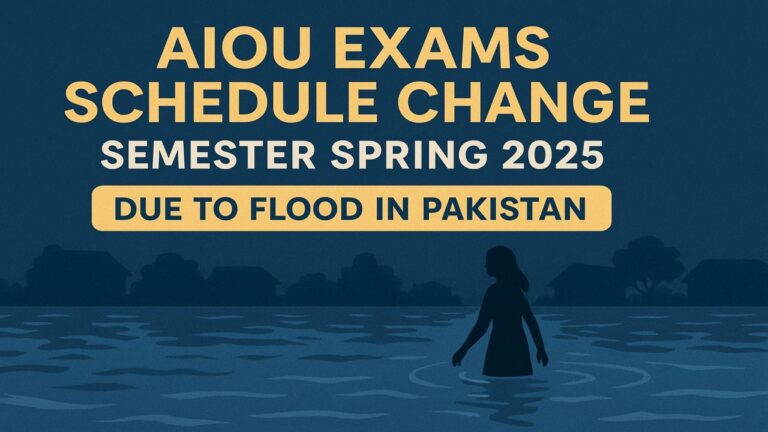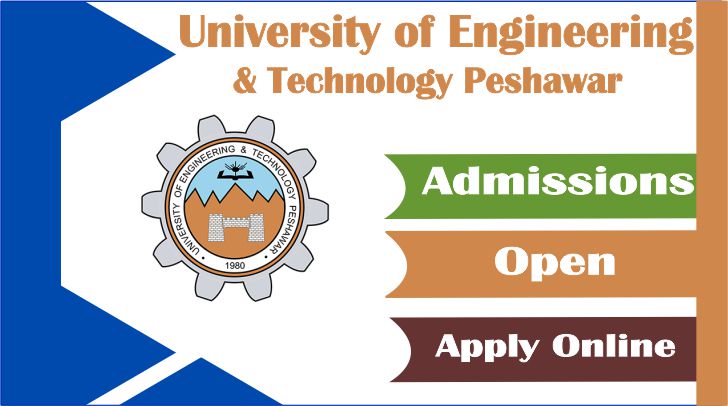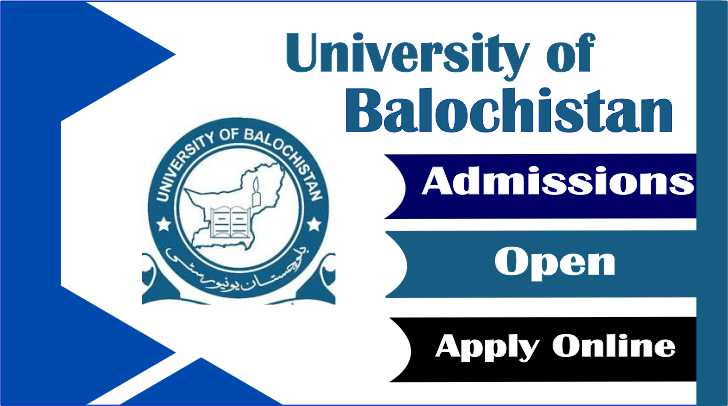Question 1:
Ten Facts and Ten Opinions on Pakistan’s Social Situation (2020)
Ten Facts and Ten Opinions on Pakistan’s Social Situation (2020)
Answer:
Introduction:
Pakistan is the fifth most populous country in the world and its social situation has always been a topic of interest for researchers, policymakers, and students of social sciences. The year 2020 was a challenging time globally due to COVID-19, but for Pakistan, many deep-rooted social issues and opportunities also came to the surface. To understand Pakistan’s social landscape better, we can divide the discussion into **facts** (objective truths backed by data) and **opinions** (subjective judgments, beliefs, or viewpoints). Facts give us a clear picture of reality, while opinions help us interpret and criticize that reality in different ways.
Body:
In conclusion, Pakistan’s social situation in 2020 reflected a mixture of undeniable realities and different perspectives. The **facts** highlight the challenges such as poverty, gender inequality, weak healthcare, and climate vulnerability, but they also show opportunities like a strong youth population and the rise of digital connectivity. On the other hand, the **opinions** emphasize the need for reforms, better governance, practical education, women’s empowerment, and effective climate action. Together, these facts and opinions help us understand Pakistan’s social strengths and weaknesses in a balanced way. For students of social sciences, separating facts from opinions is very important because it allows them to see what is real, what is interpretation, and where future policies should be focused.
Pakistan’s Social Situation (2020): Facts and Opinions
Introduction:
Pakistan is the fifth most populous country in the world and its social situation has always been a topic of interest for researchers, policymakers, and students of social sciences. The year 2020 was a challenging time globally due to COVID-19, but for Pakistan, many deep-rooted social issues and opportunities also came to the surface. To understand Pakistan’s social landscape better, we can divide the discussion into **facts** (objective truths backed by data) and **opinions** (subjective judgments, beliefs, or viewpoints). Facts give us a clear picture of reality, while opinions help us interpret and criticize that reality in different ways.
Body:
- Ten Facts about Pakistan’s Social Situation (2020):
- 1. Population: Pakistan’s population exceeded 220 million in 2020, making it the 5th most populous country in the world.
- 2. Education: Literacy rates were around 60%, with rural women facing the most disadvantages in education.
- 3. Healthcare: The healthcare system was underfunded, and villages had very limited access to quality medical services.
- 4. Poverty: Around 24% of the population lived below the poverty line, struggling for basic needs.
- 5. Urbanization: Cities like Karachi and Lahore were overcrowded due to rapid urban migration.
- 6. Youth Bulge: Over 60% of Pakistan’s people were under the age of 30, making it a very young country.
- 7. Gender Inequality: Less than 25% of women participated in the labor force, showing a wide gender gap.
- 8. Energy Crisis: Frequent load-shedding and electricity shortages disturbed daily life and economic growth.
- 9. Social Media: More than 70 million Pakistanis actively used social media platforms.
- 10. Climate Vulnerability: Pakistan was listed among the top 10 countries most affected by climate change.
- Ten Opinions about Pakistan’s Social Situation (2020):
- 1. Corruption is seen as the root cause of most of Pakistan’s social problems.
- 2. Social media has created stronger political divisions, especially among youth.
- 3. Traditional values are slowly being replaced by Western cultural influences.
- 4. The education system is criticized for not providing practical skills for jobs.
- 5. Religious extremism continues to threaten peace and social harmony.
- 6. Urban elites are disconnected from the hardships of rural communities.
- 7. Governments usually focus on short-term solutions instead of long-term reforms.
- 8. Progress in women’s empowerment is too slow to meet modern needs.
- 9. Climate policies exist but are weak and not implemented effectively.
- 10. Youth unemployment is considered a “time bomb” that could affect social stability.
In conclusion, Pakistan’s social situation in 2020 reflected a mixture of undeniable realities and different perspectives. The **facts** highlight the challenges such as poverty, gender inequality, weak healthcare, and climate vulnerability, but they also show opportunities like a strong youth population and the rise of digital connectivity. On the other hand, the **opinions** emphasize the need for reforms, better governance, practical education, women’s empowerment, and effective climate action. Together, these facts and opinions help us understand Pakistan’s social strengths and weaknesses in a balanced way. For students of social sciences, separating facts from opinions is very important because it allows them to see what is real, what is interpretation, and where future policies should be focused.
Question 2:
Ten Questions for Dr. Abdul Qadeer Khan (2017)
Ten Questions for Dr. Abdul Qadeer Khan (2017)
Answer:
Introduction:
Dr. Abdul Qadeer Khan, also known as the father of Pakistan’s nuclear program, is one of the most celebrated scientists in the country. His work not only gave Pakistan nuclear capability but also made the nation stronger in terms of defense and global standing. Asking him questions about his journey, struggles, and vision helps us understand not only his personal experiences but also the larger story of Pakistan’s scientific and social development. Below are ten important questions that reflect the challenges, inspirations, and contributions of Dr. Abdul Qadeer Khan.
Body:
In conclusion, Dr. Abdul Qadeer Khan’s answers to these ten questions highlight not only his personal journey but also the vision he had for Pakistan. He was a man of science, courage, and determination. His contributions ensured that Pakistan became a strong nuclear power, and his advice continues to inspire young scientists. By learning from his experiences, Pakistan can build a brighter future in science, education, and national security. Dr. Khan’s story is a reminder that dedication and teamwork can turn even the most difficult dreams into reality.
Ten Questions for Dr. Abdul Qadeer Khan
Introduction:
Dr. Abdul Qadeer Khan, also known as the father of Pakistan’s nuclear program, is one of the most celebrated scientists in the country. His work not only gave Pakistan nuclear capability but also made the nation stronger in terms of defense and global standing. Asking him questions about his journey, struggles, and vision helps us understand not only his personal experiences but also the larger story of Pakistan’s scientific and social development. Below are ten important questions that reflect the challenges, inspirations, and contributions of Dr. Abdul Qadeer Khan.
Body:
- 1. What inspired you to pursue nuclear science?
Dr. Qadeer Khan was inspired by his love for science and his desire to see Pakistan strong and independent. The difficult history of Pakistan and the threats it faced from neighboring countries motivated him to dedicate his life to nuclear science. He wanted Pakistan to stand tall on the world stage and never be dependent on others for defense. - 2. How did you overcome challenges during Pakistan’s nuclear program?
The journey was full of difficulties, including lack of resources, international restrictions, and technical barriers. Dr. Khan overcame these through determination, hard work, and innovation. He built a strong team of scientists and engineers who worked day and night to achieve success despite sanctions and global pressure. - 3. What role did teamwork play in achieving nuclear capability?
According to Dr. Khan, no single person can achieve such a huge goal alone. It was the teamwork of hundreds of scientists, engineers, and workers who trusted each other and remained committed to the mission. He always praised his team and considered them the real strength behind Pakistan’s nuclear success. - 4. How do you view the ethical responsibilities of scientists?
Dr. Khan believed that scientists carry a heavy responsibility because their discoveries can either build or destroy nations. He always stressed that science must serve humanity, protect people, and ensure peace. At the same time, he argued that in Pakistan’s case, nuclear weapons were essential for survival and deterrence. - 5. What advice would you give to young Pakistani scientists?
His advice was simple but powerful: work hard, never lose hope, and remain honest to your nation. He encouraged young scientists to pursue higher education, research, and innovation. According to him, the future of Pakistan depends on the talent and dedication of its youth. - 6. How can Pakistan balance nuclear energy for peace and security?
Dr. Khan often said that nuclear technology should not only be about weapons but also about peaceful uses such as electricity generation, medical treatments, and industrial development. He stressed the need for policies that balance defense with peaceful applications of nuclear energy. - 7. What is your opinion on global nuclear disarmament?
He viewed global nuclear disarmament with caution. While he admired the idea of a peaceful world without nuclear weapons, he believed that powerful nations would never truly give up their arsenals. Therefore, Pakistan had no choice but to maintain its nuclear capability to ensure survival and dignity. - 8. How did your education abroad shape your career?
Dr. Khan’s studies in Europe, especially in Germany, the Netherlands, and Belgium, gave him access to world-class knowledge and laboratories. This exposure strengthened his expertise in metallurgy and nuclear engineering. He returned to Pakistan with a strong determination to use his skills for the service of his homeland. - 9. What legacy do you hope to leave for future generations?
His legacy is not only Pakistan’s nuclear program but also his message of self-reliance and national pride. He wanted future generations to remember him as someone who devoted his life to protecting his country. For him, the real legacy was inspiring youth to work for Pakistan’s progress with honesty and courage. - 10. How can Pakistan improve its STEM education system?
Dr. Khan strongly emphasized the importance of science, technology, engineering, and mathematics (STEM) education. He believed Pakistan should invest more in research labs, modern teaching methods, and scholarships. According to him, only through quality education can Pakistan compete with advanced countries and build a stronger future.
In conclusion, Dr. Abdul Qadeer Khan’s answers to these ten questions highlight not only his personal journey but also the vision he had for Pakistan. He was a man of science, courage, and determination. His contributions ensured that Pakistan became a strong nuclear power, and his advice continues to inspire young scientists. By learning from his experiences, Pakistan can build a brighter future in science, education, and national security. Dr. Khan’s story is a reminder that dedication and teamwork can turn even the most difficult dreams into reality.
Question 3:
Ten Interview Q&A for Canadian Immigration (2020)
Ten Interview Q&A for Canadian Immigration (2020)
Answer:
Introduction:
Canada is one of the most attractive destinations for immigrants because of its peaceful environment, multicultural society, strong economy, and welcoming immigration policies. People who apply for immigration often go through an interview process where they are asked questions about their goals, plans, and ability to adjust to Canadian life. Preparing for these questions helps applicants show their sincerity and readiness to live and contribute positively in Canada. Below are ten important interview questions along with detailed answers that reflect an applicant’s commitment and seriousness.
Body:
In conclusion, the Canadian immigration interview is not just about technical answers but about showing sincerity, planning, and adaptability. The above questions and answers demonstrate how an applicant can present themselves as a responsible, hardworking, and respectful future resident of Canada. By showing preparedness, knowledge of Canadian values, and a clear plan for settlement, one can increase the chances of successful immigration and a bright future in Canada.
Ten Interview Questions and Answers for Canadian Immigration (2020)
Introduction:
Canada is one of the most attractive destinations for immigrants because of its peaceful environment, multicultural society, strong economy, and welcoming immigration policies. People who apply for immigration often go through an interview process where they are asked questions about their goals, plans, and ability to adjust to Canadian life. Preparing for these questions helps applicants show their sincerity and readiness to live and contribute positively in Canada. Below are ten important interview questions along with detailed answers that reflect an applicant’s commitment and seriousness.
Body:
- 1. Why do you want to immigrate to Canada?
Canada offers a high quality of life, modern healthcare, advanced education, and economic opportunities. Its multicultural society ensures respect for diversity and equality. I want to immigrate to Canada because it aligns with my professional growth, family stability, and personal values of freedom and respect. - 2. How will you contribute to Canada’s economy?
I have professional skills, work experience, and qualifications in my field which can help fill gaps in Canada’s labor market. By working hard, paying taxes, and contributing to the workforce, I can become a productive member of Canadian society and strengthen the national economy. - 3. Have you researched the city you plan to settle in?
Yes, I have studied details about the city where I plan to live. I explored its job opportunities, cost of living, housing options, healthcare facilities, and educational institutions. This research will make my transition smoother and help me settle quickly in the new environment. - 4. How will you adapt to Canadian winters?
Canadian winters are known to be very cold. I will prepare by buying proper clothing such as warm jackets, boots, and gloves. I will also learn winter safety tips like driving carefully in snow and keeping my home heated properly. With preparation, I will be able to adapt comfortably. - 5. What do you know about Canadian values?
Canada is respected worldwide for its values of diversity, equality, tolerance, and human rights. Canadians believe in respecting all cultures, religions, and languages. These values are very close to my heart, and I strongly admire the inclusiveness of Canadian society. - 6. Do you have relatives or friends in Canada?
[If Yes] Yes, I have family/friends in Canada who will provide support and guidance during my settlement.
[If No] No, I don’t have relatives in Canada, but I am independent, confident, and capable of building new social connections and managing my settlement responsibly. - 7. How will you finance your initial stay?
I have arranged personal savings and financial resources to support myself and my family in the initial months. In addition, I have a job offer/plan to secure employment soon after arrival, which will ensure financial stability and independence. - 8. What challenges do you anticipate?
I expect cultural adjustment and some initial difficulties in adapting to new traditions, but I am proactive and willing to learn. Language improvement, new workplace culture, and understanding the system may take some time, but I am confident in overcoming these challenges. - 9. Why should Canada select you over others?
I believe I am a strong candidate because of my professional skills, adaptability, and commitment to contributing positively to Canadian society. I am hardworking, respectful of diversity, and eager to be a valuable member of the Canadian workforce and community. - 10. How do you plan to integrate into the community?
I plan to integrate by volunteering in local programs, joining community clubs, attending cultural festivals, and respecting local traditions. By building friendships and contributing to community development, I will become an active and responsible Canadian resident.
In conclusion, the Canadian immigration interview is not just about technical answers but about showing sincerity, planning, and adaptability. The above questions and answers demonstrate how an applicant can present themselves as a responsible, hardworking, and respectful future resident of Canada. By showing preparedness, knowledge of Canadian values, and a clear plan for settlement, one can increase the chances of successful immigration and a bright future in Canada.
Question 4:
Ten Sentences Appreciating a Cricket Century (2023)
Ten Sentences Appreciating a Cricket Century (2023)
Answer:
Introduction:
A cricket century is one of the most special achievements in the game. Scoring 100 runs not only requires talent but also patience, hard work, determination, and focus. Every century tells a story of courage and resilience, and it inspires the whole team and millions of fans. Below are ten detailed and meaningful sentences to appreciate a batsman’s century in simple yet powerful words.
Body:
In conclusion, a cricket century is not just a number but a story of commitment, courage, and class. Each of the above sentences shows how deeply such an innings can inspire teammates, fans, and the future generation of cricketers. A century is always remembered as a moment of pride, motivation, and joy for everyone who loves the game.
Ten Sentences Appreciating a Cricket Century
Introduction:
A cricket century is one of the most special achievements in the game. Scoring 100 runs not only requires talent but also patience, hard work, determination, and focus. Every century tells a story of courage and resilience, and it inspires the whole team and millions of fans. Below are ten detailed and meaningful sentences to appreciate a batsman’s century in simple yet powerful words.
Body:
- 1. Your century was a masterclass in patience and precision – every shot reflected your
dedication!
This century was not just about scoring runs; it was a true lesson in how to stay calm, disciplined, and precise in every stroke. Each shot reflected your years of hard work, practice, and strong determination to succeed even under pressure. - 2. The way you dominated the bowling attack was sheer brilliance!
You faced some of the best bowlers with confidence and turned the pressure into an opportunity. The way you controlled the pace of the game and punished loose deliveries showed your dominance and brilliance on the field. - 3. Your flawless footwork and timing left the spectators in awe!
Good batting is not only about power but also about grace and technique. Your footwork was perfect, and your timing was so accurate that the spectators could not stop admiring your game. It was truly an exhibition of elegance. - 4. This innings proves why you’re the backbone of our team!
Every team needs a player it can depend on in crucial times, and you showed once again why you are that player. Your innings brought stability, confidence, and a fighting spirit to the entire team. - 5. You turned pressure into performance – a true champion’s mindset!
Great players shine when the situation is toughest. You did not panic under pressure; instead, you used it as motivation to play even better. This quality shows that you carry the mindset of a true champion. - 6. The cover drives and pull shots were textbook perfection!
The beauty of your century was not only in the numbers but also in the style of your shots. Your cover drives were like strokes from a coaching manual, and your pull shots displayed flawless control and confidence. - 7. Your century wasn’t just about runs; it lifted the team’s spirit!
Beyond the personal milestone, your innings energized the whole team. It lifted the morale of your teammates, gave them hope, and brought a new wave of confidence to continue fighting strongly. - 8. Watching you bat was like witnessing poetry in motion!
Your shots were not just cricket strokes; they were like lines of poetry written on the field. Each boundary and every run flowed so smoothly that it felt like watching a beautiful piece of art in motion. - 9. Your focus never wavered, even in the toughest moments!
Concentration is the key to a great innings, and you proved it. Even when bowlers tried to break your rhythm, you stayed composed, focused, and determined to reach your century without losing control. - 10. This milestone is a testament to your hard work – keep inspiring us!
Every century is built on years of dedication and practice. This achievement reflects your tireless effort, discipline, and passion for cricket. It is not only your success but also an inspiration for fans and young cricketers to dream big and work hard.
In conclusion, a cricket century is not just a number but a story of commitment, courage, and class. Each of the above sentences shows how deeply such an innings can inspire teammates, fans, and the future generation of cricketers. A century is always remembered as a moment of pride, motivation, and joy for everyone who loves the game.
















